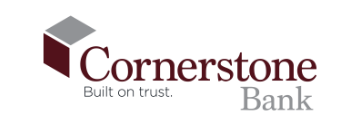It’s never too early to teach your children the basics of financial literacy and the importance of saving responsibly. What better time to begin this essential education than National Teach Children to Save Day? As part of Financial Literacy Month, this is an opportunity to help your kids create a lifelong roadmap so they can achieve financial goals and build financial security. Here are four tips to get started.
1) Discuss Spending and Saving
Spending and saving are the most basic facets of money management. Your children need to recognize two simple facts: most items and experiences cost money and money is a limited resource.
When it comes to spending, start by teaching them about budgeting and tracking, which helps create positive lifelong habits. Explain that saving is a major factor in getting the items or experiences they want and show how creating (and sticking to) financial goals is key.
2) Set a Good Example
Your children are more likely to take your message to heart if they see you practicing what you preach. Let them notice you regularly putting funds into a jar or piggy bank, while making note of the money adding up. If you take them shopping, show your children differing prices to explain why buying one item makes more sense than another. Each time you receive a paycheck, reiterate the message that part of that money will be put away to prepare for the future. Your children look up to you; setting a good example with your savings will go a long way!
3) Open a Moola® Savings Account
Let children see that saving money doesn't have to be boring! Find creative ways to turn financial literacy into an exciting and engaging activity, such as opening a Moola® Savings Account.Specifically designed for children, we make the process of building savings fun and rewarding. Start your kids on a path of financial literacy and we’ll reward them with points they can redeem for cool prizes. This account will also help your child track every deposit, see the interest they earn, and keep track of their points, right in their passbook! Bring your child to any of our branches to get started.
4) Continue the Education
Once your children master the basics of financial literacy, continue to educate them using evolving techniques and lessons. Expand to other topics like the three-jar method,
which distributes their allowance into saving, spending, and giving groups. Or try the 50/30/20 rule, which divvies up after-tax income or allowance, into 50% needs, 30% wants and 20% long-term savings. No matter what approach you take, the idea is to keep the conversation going.
Ready to Help You Save
We can assist you and your children in building a foundation for financial security. We frequently provide financial literacy education presentations throughout Central Massachusetts. Contact us to set up a program in your community.

 Translate
Translate